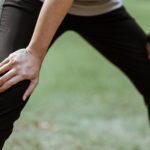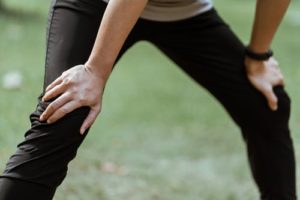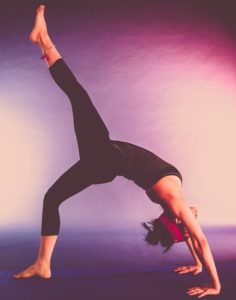Is your post-workout recovery routine working against you?
The overall success of a workout routine depends as much on what you do to recover afterwards, as the actual exercise itself.
Sure, it’s very important that you prep yourself physically and mentally for your workout. And you need to be focused while you are doing the exercises. But how about your post-workout routine? Are you making one (or all) of the following post-workout mistakes?
Check out these common post-workout recovery mistakes and find out how you can turn things around.
Most common post-workout recovery no-no’s
Not taking enough protein after an intense workout
Image Credit: LYFE Fuel on Unsplash
Not consuming the recommended amount of protein after working out inhibits proper recovery. You need about 1.2 grams of protein per kilogram of body weight for your muscles to recover properly.
Another misconception is that you have to take a protein recovery shake right after working out. However, studies have shown that it doesn’t matter if you were able to take protein within an hour after working out. What’s important is that your body’s overall protein requirement is achieved throughout the day.
Drinking coffee after working out
Image Credit: Emre Gencer on Unsplash
Workouts release cortisol in the body. After an intense hour in the gym your body naturally produces this hormone, which is good – a perfectly normal response to the physical stress you just went through.
Caffeine also increases the cortisol levels in your body, so drinking coffee after a workout raises this hormone level needlessly. High levels of cortisol in the body can cause inflammation, not to mention can slow down your recovery process. So, even though you are working out real hard – you may not see the results you want.
Instead, drink coffee at least half an hour before your workout. This will give you that energy boost and help improve your performance. Stick to water or coconut water for post-workout drinks.
Not giving yourself enough time to recover
Image Credit: Allef Vinicius on Unsplash
In other words – overtraining. Going to the gym and working out for more than an hour every day is not healthy. For most people, it takes about a day and a half for muscles to recover from workouts. Give yourself enough time to recover between hard workouts, especially if you’ve suffered an injury.
At the most, opt for active recovery exercises. Go for an easy walk around your neighborhood. Do wall push-ups for some light resistance training. Go swimming or an easy bike ride. Make sure though that you keep these light exercises in under 20 minutes. The goal is to maintain a healthy blood flow to your sore muscles and help with recovery.
Immersing in ice baths for too long or not long enough
Image Credit: Train Dirty London
Cold water immersion or soaking in ice baths are recovery methods done by athletes to effectively relieve post workout muscle soreness. It is believed that the cold water constricts blood vessels and flushes out waste products like lactic acid from the muscles, thus reducing swelling and pain.
Studies show that a 5-10 minute soak in water temperatures of 11 to 15 degrees celsius, provides the best results for post workout muscle pain and soreness. This means that soaking in an ice bath for less than five minutes does nothing but make you very uncomfortable. Soaking for longer than 10 minutes can cause an abnormally fast heartbeat, anaphylactic shock or tissue damage.
Not getting enough sleep
Image Credit: Kinga Chichewicz on Unsplash
We know this is starting to sound like a broken record, but a good amount of sleep is a critical part of any workout. When you’re sleeping, your body repairs the micro-tearing in your muscles that was caused by your workouts. Not getting enough sleep disrupts this repair process, which slows down recovery and puts you at risk of other health issues.
So, get sufficient sleep as you can post-workout, at least 8 hours every night. Establish a routine so you can fall asleep quickly. Keep distractions like cellphones and computers out of the bedroom. Remember, the quality of sleep is as important as the number of hours you’re getting.
Not self-massaging after a workout
Image Credit: Hydragun
Everybody in the sports and fitness industry has heard and talked about it: the massage gun. It is the handheld workout recovery device that athletes and trainers swear by. It’s a great way to get that post- workout massage sans a therapist, especially now that the recent pandemic has everyone encouraged to observe social distancing.
Resembling a power tool, massage guns use percussive force to drive vibrations deep in the muscles. The vibrations then relieve the lactic acid build-up in the muscles, which provide almost immediate relief from muscle soreness and pain. Regularly use is also said to help strengthen muscles.
Doing self-massages helps loosen up those tight, post-workout muscles. It helps you relax and speeds up recovery. You, after all, need to prepare your body for your next workout session. And a self-massage tool like a massage gun gets the job done.
Takeaway
There you have it, the most common post-workout recovery mistakes among fitness enthusiasts. After your workout, make it a point to avoid these mistakes so you can be certain that your hard work at the gym is actually working for you and not against you.












More Stories
Aerobics for Beginners
Have You Ever Tried Functional Fitness Training?
Weight Loss Through HIIT Exercise